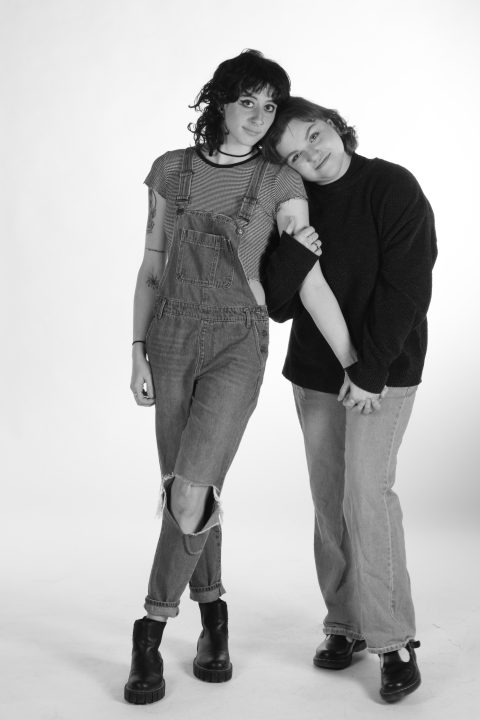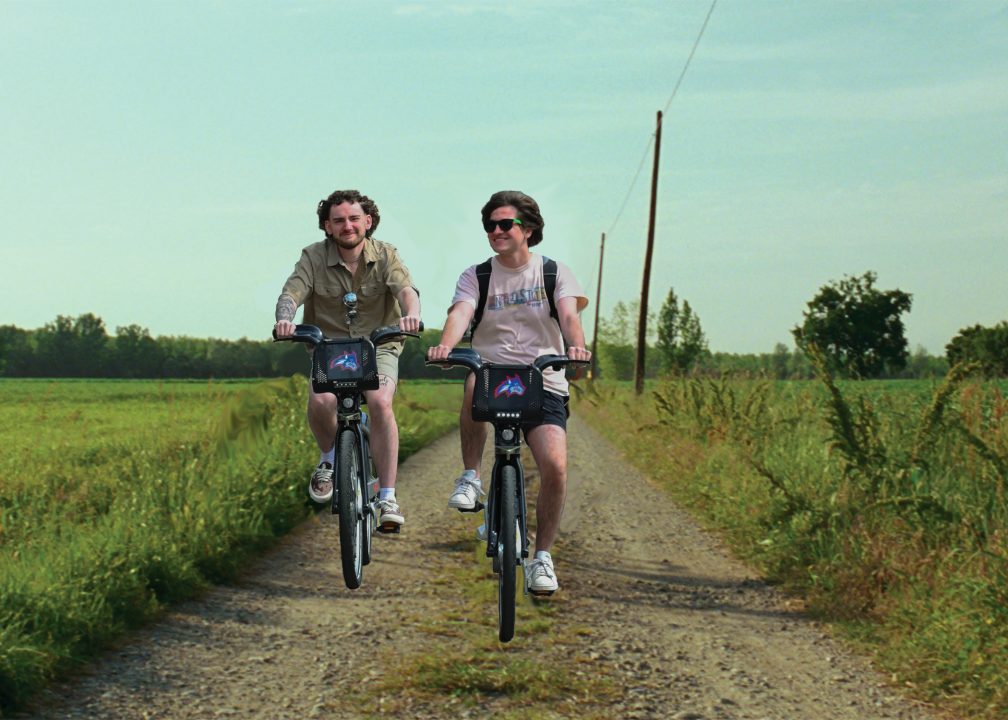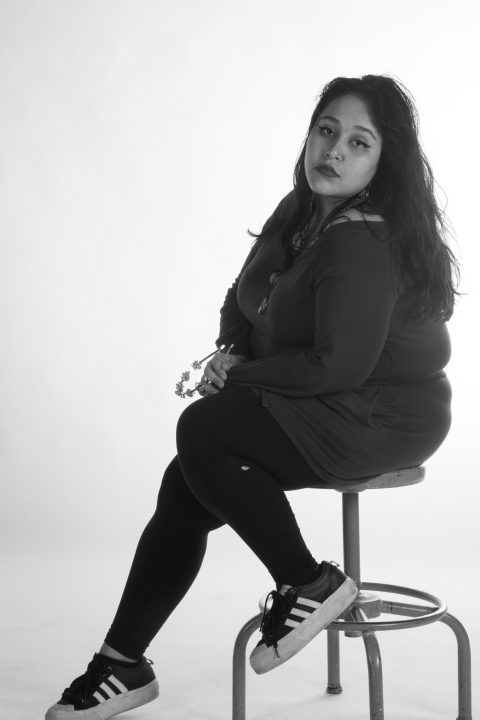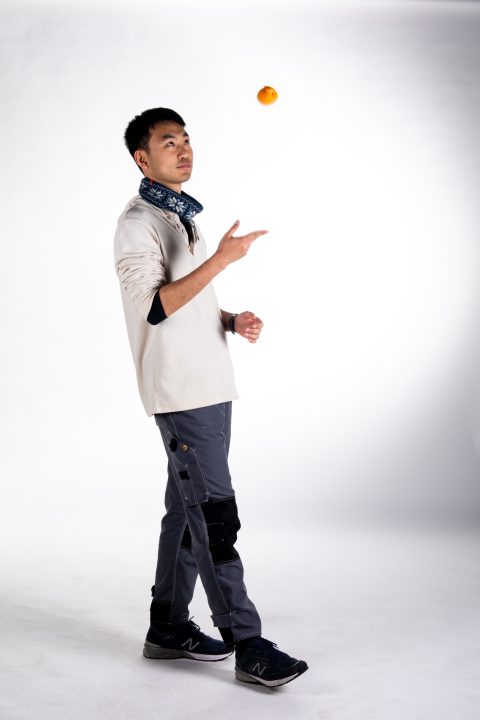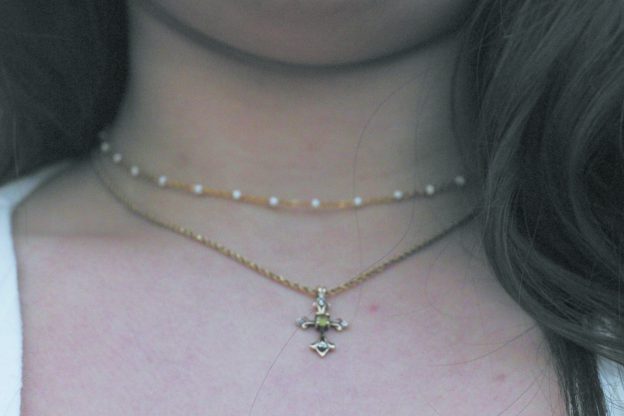
Ahead of the 2023 “Sex and Relationships” special issue, three Stony Brook students reflected on the Catholic education they received before transitioning to the public school system. A common theme: sexual exploration before marriage was strictly prohibited, and the students felt that educators were willing to guilt them into compliance.
Maria Lynders:
I was taught that sex before marriage was a sin before I even knew what sex was. I went to a small private catholic school in Madison, Conn. from kindergarten through eighth grade.
In fifth grade, all of the girls were pulled into a private room by our school nurse and given a talk about menstruation. I remember a brief and vague description of the “birds and the bees” — but only after marriage. The only contraceptive we learned about was abstinence.
In seventh grade during homeroom, each of the girls in my class was given a small, squishy fetus doll. It fit in the palm of my hand, curled up like a sleeping, miniature flesh-like baby. I remember thinking how small its hands looked compared to mine and how far its forehead protruded. My teacher, an extremist pro-lifer, told us to look at the baby in our hand and picture it growing inside us. She then asked us — “would you kill your baby?”
In eighth grade, the week before graduation, my class of 22 students was once again split up by gender into private rooms. It was during a practice graduation recital at our church, and the boys were pulled aside by our priest into a chapel room alone. They told us later that the priest sat them down and talked about how masturbation was a sin, and if they were to give in, to come to him to confess.
At the same time, us girls were in the adjacent room, anxiously sitting around a conference table. We listened wide-eyed while our teacher told us a story about her niece aborting her college pregnancy and regretting it for the rest of her life. She then proceeded to give us pamphlets to protest outside of abortion centers.
According to data from the National Catholic Educational Association, enrollment in U.S. Catholic schools for the 2022-23 school year has reached 1.6 million students in 5,920 schools. The lack of education about sex and the blatant agenda to guilt students into an outdated and biased mindset about masturbation, abortion and sexuality is dangerous and needs to stop.
While I understand that attending Catholic school comes with certain ideals promoted, it is the responsibility of the faculty to educate and realistically prepare students to understand safe sex and consent.
Anya Marquardt:
I attended Catholic school in my earlier years, from preschool through second grade. After I switched to public education, I attended religious education once a week until I was 15 years old. There was nothing more frustrating — and boring — than sitting at tiny desks on the top floor of a Catholic school for an hour on Tuesday nights with a dozen other kids who wanted nothing more than to sprint out the door.
Now, about seven years after the end of my religious education, there is one word that I remember being repeated more than any other: “sin.” Sexual attraction was a sin. Sexual thoughts were a sin. And masturbation? Forget about it.
During a retreat required for everyone who wanted to receive confirmation — or were being forced to do so by their parents — we were lectured about abstinence for hours. We sat cross-legged on the gymnasium floor and “listened” as half a dozen adults, including the priest, youth group leader and religious education director demanded we always remember abstinence is our only option if we want a sexual experience that God would accept.
I remember kids holding back giggles when one boy asked if they could explain the use of condoms to us, and the fire of fury that ensued as a result. We were chastised for believing that we would have a need for such an item — waiting until marriage was our only option, and at that point, was there a need for sexual protection? Evidently not.
Sex education wasn’t on the list of items to be taught during my Catholic education because, well, what did us kids need to be educated about? We weren’t supposed to be having sex yet, and it wasn’t supposed to be something we did or even thought about.
I was lucky enough to have been taught about safe sex in other aspects of my life, but the thought of the millions of children who haven’t received a proper sexual education makes me shudder.
The phrase that abstinence is “100% effective” is ridiculous. In fact, evidence collected over the past 20 years has overwhelmingly shown that adolescents who attempt to practice abstinence fail to do so, and when they engage in sexual intercourse, often do not use a condom. This in turn leads to a higher rate of unplanned pregnancies and STDs.
Ideals and values are one thing — practicality is an entire other story, and that’s the part that Catholic education is continuously ignoring.
Sarah Murphy:
The only sex education I received was in fifth grade. I honestly just remember bits and pieces of it. The whole grade was called to our big auditorium, where items such as pads and tampons were passed around — the boys clearly unamused and unaffected by the event.
I attended public school from first grade up until the end of middle school before switching to Catholic high school. Although the school made it mandatory for everyone to take a one-semester health class, we only discussed topics such as date rape and learned how to give CPR. While these are important fields to be educated in and were beneficial to my experience, the health course failed to include anything that pertained to sex education.
The class that did address sex, but not in an educational way, was my theology lecture. We were told that having sex before marriage was a sin, along with any other sexual acts. I understood that the school would project its religious beliefs within its curriculum, but I did not realize that meant that it would negate any real exposure to sex education.
Another topic that was heavily emphasized in our class was abortion. During my senior-year theology class, our teacher saw fit to explain to the class that the United States was more “holy” than other countries such as China, where abortion was common because of the one-child policy. The teacher explained that what China was doing was sinful in the eyes of God.
As someone who was adopted from China, hearing his extreme views was quite jarring. I remember an international student in my class raised her hand because it made her deeply uncomfortable. I never viewed the one-child policy as some malicious act, but the way my teacher villainized it in a way to encourage students not to get abortions was unsettling.
The school also hosted a field trip every year to attend pro-life events. I never attended the pro-life marches even though they were heavily advertised as something that was good. I did not agree with what the group stood for, but that was not something I could express outwardly.
It wasn’t until college that I realized how lacking my sex education was. I was angry and felt that my high school had done me a disservice. A well-rounded education was needed, but instead, strict religious ideals were forced.








